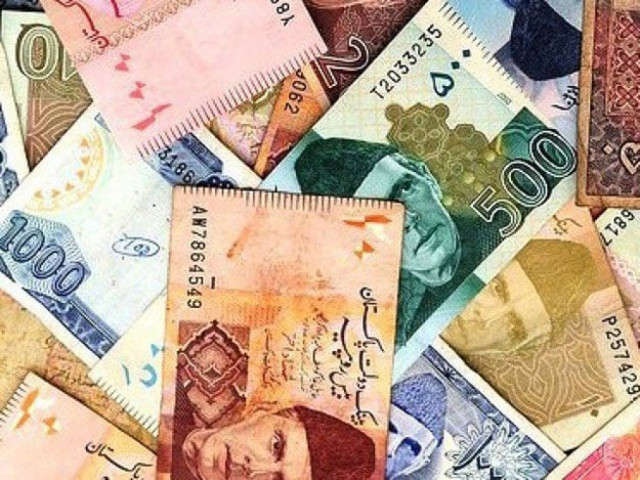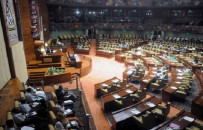Privatisation proceeds: Final approval granted to $1b HBL stock offering
Largest capital markets transaction; foreign investors take lion’s share

Largest capital markets transaction; foreign investors take lion’s share. STOCK IMAGE
The government on Saturday gave its final nod to the largest capital markets transaction in the country’s history, raising $1.02 billion by selling off 609 million of its last remaining shares in Habib Bank, the country’s largest bank.
At a meeting of the Cabinet Committee on Privatisation (CCoP), the government approved the Rs168 strike price for its divestment in Habib Bank, announced the finance ministry. The offer was oversubscribed by 60%.
The finance ministry said the strike price of Rs168 per share was recommended by the Privatisation Commission Board in its meeting, also held on Saturday. The share price was worked out under the strike price methodology.
The government had received the highest bid of Rs200 per share and the lowest bid was Rs161 per share, a senior official of the Privatisation Commission told The Express Tribune.
Had the government used the Dutch auction method, the realised proceeds from the transaction might have been higher, since each bidder would receive shares according to the price they bid, above the cutoff strike price.
The Dutch method had been adopted in Pakistan Petroleum secondary offering transaction while the strike price method had been adopted in the case of United Bank secondary offering transaction.
The strike price method has been approved by the Securities and Exchange Commission of Pakistan, said Privatisation Commission chairman Mohammad Zubair, while responding to a question about the chosen methodology.

The government gave a discount of roughly 9.5% per share over last Friday’s closing price of Rs185.62, which became the benchmark for determining the floor price. The final settlement price was Rs2 per share over the minimum price of Rs166 per share.
In allocating shares to investors, the government gave preferential treatment to the UK-based Commonwealth Development Corporation (CDC) and the International Finance Corporation (IFC) of the World Bank. Unlike the other bidders who would get the shares prorated on their offered bids, the CDC and IFC will get 100% of the share allocation they bid for, said Zubair.
The CDC’s bid was for $125 million worth of shares and the IFC bid for $75 million, said Asad Rasool, the Habib Bank transaction manager. The Privatisation Commission chairman defended the move of giving preferential treatment to the CDC and IFC, arguing that it was in accordance with international best practices. He also claimed that the preferential treatment was given in accordance with government rules.
The CDC and IFC served as “anchor investors” in the transaction. During capital raisings, investment banks will often encourage companies raising capital to give preferential treatment in allocating shares to long term investors who are unlikely to sell their shares in the short run. If too many short-term investors participate in a transaction, it can cause the share price to drop precipitously after the offering has taken place, resulting in a bad market reputation for the seller — in this case the government of Pakistan, which in turn would make future transactions more difficult.
In somewhat of a surprise move, the Aga Khan Fund for Economic Development, which currently owns a 51% stake in Habib Bank, along with management control, did not directly bid for the secondary offering of the bank’s shares, according to the commission. Zubair said that he was unaware if the Fund made any indirect bids.
The transaction was the largest ever in the history of Pakistan’s capital markets, raising $1.02 billion from a total of $1.6 billion received in bids from investors around the world. Of the accepted bids, $764 million were from foreign investors, according to Zubair. Some Rs24.6 billion was from domestic investors, including Rs5 billion from the Sindh Pension Fund. The largest allocation went to Lizard Investors, a Chicago-based asset management firm, who now own $200 million worth of Habib Bank shares.
Zubair acknowledged that the transaction was carried out in a particularly stressful time for shares of Pakistani banks, which have been underperforming the broader market. In addition, the Karachi Stock Exchange was passing through a correction period, he added. Zubair said that the government had the option to postpone the deal for few weeks but did not do it, fearing that it would send negative signals to foreign investors, particularly in light of the canceled secondary offering of the state-owned Oil and Gas Development Company late last year.
Finance Minister Ishaq Dar said that the tremendous response at home and abroad, including the offering by the IFC and CDC, spoke volumes of the confidence that international financial institutions had in Pakistan’s economic standing brought about by concerted economic reforms by the Nawaz Administration.
After the transaction, Habib Bank’s free float has increased from 7.5% to 49% of shares outstanding. The $1.02 billion in proceeds will be utilised by the government to retire some of its debt.
Published in The Express Tribune, April 12th, 2015.



















COMMENTS
Comments are moderated and generally will be posted if they are on-topic and not abusive.
For more information, please see our Comments FAQ